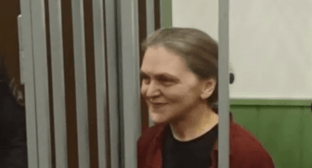31 August 2004, 11:45
Renewed violence, human rights abuses undermine credibility of presidential elections
We call your attention to the statement issued by the International Helsinki Federation for Human Rights (IHF) and the Moscow Helsinki Group (MHG) on August 30, 2004:
The International Helsinki Federation for Human Rights (IHF) and the Moscow Helsinki Group (MHG) called into question the credibility of presidential elections in Chechnya that were held against a backdrop of increased violence in the conflict-torn republic.
The IHF and MHG consider that minimum international standards for holding free and fair elections do not exist in Chechnya. Moreover, the organisations express their concern that during the run-up to the election, Russian electoral authorities unfairly excluded competitors to the post to ensure the victory of the Kremlin's favoured candidate, Alu Alkhanov.
In addition to the continuing widespread and pernicious practice of "disappearances", torture and extra-judicial execution of civilians that are recorded daily by human rights organisations, in the days preceding the ballot, the frequency and intensity of the armed conflict in the republic increased. On 21 August, in coordinated attacks by fighters on police stations in Grozny, dozens of Russian security forces were killed. In the course of the IHF/MHG mission to Chechnya, we learned that over a dozen civilians and over 50 law-enforcers were killed in the fighting and some thirty others were wounded. In the aftermath of the assault local human rights groups reported raids or zachistki in the Grozny region and approximately nine men taken away by Russian security forces; the fate and whereabouts of these detainees is unclear.
"The brutal Chechnya conflict is crying out for a political solution", stated Aaron Rhodes, Executive Director of the IHF. "Yet manipulating democracy to produce a predetermined outcome is neither fair nor a solution", he added. "Rather it will serve to entrench both sides in this un-winnable war of attrition in which civilians continue to be the primary victims", he continued.
The IHF and the MHG consider that the Russian authorities are repeating the same mistakes and violations of electoral standards as those witnessed in the election of Akhmad Kadyrov to the post of president in 2003. Organisations, such as the OSCE, condemned the 2003 presidential elections as being neither free nor fair. Kadyrov's election led not only to increased violence from Chechen fighters against Russian security forces and civilian administrators, but the creation of the Kadyrovtsy, an armed militia under the command and control of Kadyrov that engaged in serious human rights violations, including "disappearances", torture and execution against civilians. Akhmad Kadyrov was killed on 9 May 2004 by a bomb believed planted by Chechen fighters.
"This second episode of the show 'Election for President in the Chechen Republic' is nothing but a bitter deja vu. The lessons of the Kadyrov experiment have clearly not been learned", stated Tanya Lokshina, Programs Director of the MHG. "Alkhanov's de facto appointment as president, in effect dictating to the Chechen people who should be their representative, will not lead to lasting peace and security in the region", she added.
The IHF and the MHG call upon the international community to insist that the Russian government adheres to its obligations under international human rights and humanitarian law. In particular, the organisations note the resolution passed by the Parliamentary Assembly of the Council of Europe in April 2003, which highlighted the "urgent action [...] necessary to counteract the climate of impunity which has developed in the Chechen Republic over the last decade" and more specifically warned that:
[...] if the efforts to bring to justice those responsible for human rights violations are not intensified, and the climate of impunity in the Chechen Republic prevails, [the Assembly should] consider proposing to the international community the setting up of an ad hoc tribunal to try war crimes and crimes against humanity committed in the Chechen Republic.
The IHF and the MHG strongly consider that in the intervening sixteen months since that resolution was passed, no urgent or effective action been undertaken by the Russian authorities to investigate the crimes and prosecute the offenders. Moreover, the IHF and the MHG note the resolution adopted by the United Nations Human Rights Commission in April 2001, which called upon the Russian government to:
[...] establish, according to recognized international standards, a national broad-based and independent commission of inquiry to investigate promptly alleged violations of human rights and breaches of international humanitarian law committed in the Republic of Chechnya of the Russian Federation in order to establish the truth and identify those responsible, with a view to bringing them to justice and preventing impunity.
Despite these resolutions and an increase in violence, neither tribunal nor a credible national independent commission of inquiry have been established.
The IHF and MHG call upon the Russian government to:
- investigate violations of international human rights and humanitarian law and prosecute the perpetrators in fair trials; and
- undertake urgent measures to seek a political resolution to the conflict.
The IHF and MHG call upon the international community to:
- bring pressure to bear on the Russian government to adhere to its obligations under international human rights and humanitarian law; and
- to seek the implementation of resolutions adopted, inter alia, by the Parliamentary Assembly of the Council of Europe and the United Nations Human Rights Commission to address impunity for serious human rights violations.
Source: International Helsinki Federation




